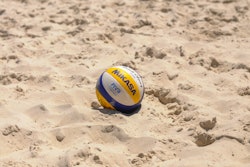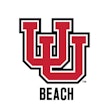The U.S. Supreme Court on Wednesday heard arguments in an antitrust case that could reshape collegiate athletics by challenging the association’s compensation rules.
The NCAA has challenged lower court rulings saying that current athlete-compensation limits violate antitrust law, and that there should be no nationwide limits placed on the education-related benefits student-athletes in men’s and women’s basketball or football can receive. USA Today reports that benefits lower court rulings would allow include such things as cash payouts for academic achievement, scholarships to complete degrees at any school, and paid internships following eligibility for collegiate athletics.
During oral arguments, which were heard via teleconference as the Court manages the pandemic, the justices asked pointed questions of attorneys representing either side of the case.
On the one hand, justice Brett Kavanaugh told NCAA attorney Seth Waxman that “the antitrust laws should not be a cover for exploitation of the student-athletes.”
"It does seem … schools are conspiring with competitors — agreeing with competitors, let's say that — to pay no salaries for the workers who are making the school billions of dollars on the theory that consumers want the schools to pay their workers nothing,” Kavanaugh added. “And that just seems entirely circular and even somewhat disturbing."
Other justices, however, seemed concerned about the legal erosion of any sort of limit on compensation for athletes.
“It's like a game of Jenga,” Chief justice John Roberts said. “You've got this nice solid block that protects the sort of product the schools want to provide. And you pull out one log and then another and everything's fine and another and another. And all of a sudden the whole thing comes crashing down.”
That concern was addressed by Jeff Kessler, the attorney representing the plaintiffs in the case, who said that the issue at hand is only related to education-related benefits. But, another case making its way through the system is taking specific aim at the NCAA’s ability to instill association-wide restrictions on name, image and likeness compensation.
Justice Elena Kagan weighed in with concerns on either side of the issue, asking Kessler whether removing the education-related benefits limits would open the floodgates.
“(Athlete compensation) is just going to go up and up and up, and pretty soon it will just be a regular labor market,” Kagan said.
Meanwhile, USA Today reports that Kagan did not seem sympathetic to NCAA arguments that its right to set compensation limits was grounded in precedent.
A ruling on the case is expected to be handed down in late spring or early summer.





































